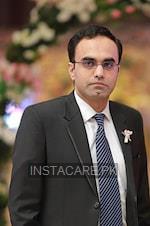Are you concerned about at what age a man stops producing semen? Have you heard stories of men in their 50s and 60s who still have a great deal of ejaculate, or do you wonder if there is any truth to the myth that once men reach a certain age they're no longer capable of normal sexual functioning? There is some uncertainty surrounding this topic, and many factors can affect when a man reaches his peak reproductive capabilities - including lifestyle, health conditions, diet and even genetics. In this blog post we will discuss the signs that may indicate whether it's time for men to start considering different options for preserving fertility as they reach their later years. Whether you're looking for reassurance or just want to understand more about aging and its effects on sperm production, this article has all your answers!
What is ejaculation?
Ejaculation is the process by which sperm and other fluids, such as prostate fluid, are released from a man's body at the pinnacle of sexual pleasure. It is often assumed that ejaculation happens at any age, however, many men find that their ability to ejaculate decreases as they age.
In almost every case, at some point in a man's life, it becomes impossible for him to ejaculate at all. As age increases and hormones begin to change, men may experience changes with how long or intense their orgasm can be. The average point at which a man stops ejaculating completely is around the age of 50-60 years old, but this range may vary depending on an individual’s physical health and lifestyle choices.
What are the different types of ejaculation?
As men age, they can experience different types of ejaculation. In younger men, ejaculations tend to be more powerful as the glands are at their strongest and expel larger amounts at a faster rate. However, for older men, ejaculations occur at a slower speed and lower intensity because at this age the glands have weakened.
At what age does a man stop experiencing any kind of ejaculation at all? This varies from man to man, with some studies showing that it could occur anywhere between 50-85 years old; most often at the later end of that range. Age can also have an effect on the quality and quantity of semen, as well as its color and consistency. Knowing how age affects ejaculation in men is important for understanding any changes in male fertility during different stages of life.
How does aging affect the production of semen and sperm cells?
As men age, the production of semen and sperm cells changes drastically. The at what age does a man stop ejaculating varies from one individual to another; however, for most men ejaculation usually stops at about 60-65 years old due to less semen being produced at that age.
While it is possible for men past this age to still ejaculate, their bodies tend to produce less and less sperm cells over time. How age affects ejaculation in men was at one time a mystery; however, studies have now begun to reveal some of the ways aging affects the production of semen and sperm cells, such as fewer sexual hormones being produced and lower volumes of seminal fluid being released with each ejaculation.
How does this impact ejaculation?
Aging has a direct effect on both the production of semen and sperm cells and ejaculation in men. After the age of fifty, a man may experience a decrease in the quantity of liquid he produces at ejaculation, but there is no definite at what age men will stop ejaculating entirely. Also at this time, men may start to notice that their sperm production is beginning to decline; older sperm are often less motile and take longer to reach an egg making it more difficult for conception.
View More: Semen Retention - Benefits Risks and Side Effects
This lower quality can be improved with lifestyle changes such as quitting smoking, increasing exercise, proper hydration, and eating a healthier diet. With these modifications, many men see positive results at improving their ejaculation rate as well as higher quality sperm production
Treatments or methods to help men with aging-related ejaculatory issues
As men age, they may experience changes in their ability to ejaculate. Generally, at the age of 50 and above, ejactulatory issues can arise due to decreased testosterone production, which plays a vital role in the quality and speed at which a man ejaculates.
Various treatments are available to men who are experiencing such issues associated with aging, including medications and lifestyle adaptation methods. Hormonal therapy such as testosterone replacement or promoting nitric oxide synthesis is often recommended for restoring libido and normal ejaculatory function. Additionally, other lifestyle modifications such as stress-relief techniques (e.g. Yoga or meditation) have been found to be beneficial for reducing ejaculatory problems at any age.
Side effects associated with these treatments/methods?
Age-related ejaculatory issues are a common problem for many men. As a man grows older, at some point they may stop ejaculating altogether. The reasons behind this can vary, though it usually involves changes in hormone production, urinary flow, and other conditions that tend to occur at an older age. Fortunately, there are a number of treatments and methods available to deal with these age-related issues.
However, before opting for any treatment the patient should be aware of possible side effects. These could include erectile dysfunction, urinary incontinence or retention, reduced sexual desire and performance, or even psychological problems such as stress or depression. It is important to talk to your doctor before trying any treatment so you can understand the risks and make an informed decision about your health.
How to discuss with doctor?
It is perfectly normal for men to have questions or concerns regarding ejaculatory issues at any age. If you feel as though at any point you are having difficulty with ejaculation, it is important to bring the issue up with your doctor in order to get the help and support you need.
Age does, at times, affect how quickly or often a man may be able to ejaculate; however, at what age this occurs can depend greatly from person to person. Explaining all your specific symptoms and reactions to your doctor can help them put together a course of treatment that could work best for you.
What are the causes for male ejaculation to stop?
Male ejaculation stops at different points during a man’s life depending on his age, lifestyle decisions, and overall health. There are multiple factors behind why at what age a man will stop ejaculating. Age can be one of the main contributing factors; older men tend to be less physically and sexually active than younger men, which can lead to a decrease in semen production at an early age.
Additionally, lifestyle decisions such as smoking, drinking alcohol excessively, and engaging in unhealthy diets could also be causes for earlier ejaculatory problems due to their effects on the body's testosterone levels. Other medical health issues could also impair or limit the chances of having a successful ejaculation. Although there may not be any definitive answer to at what age does a man stop ejaculating, paying close attention to one's lifestyle and health decision can ensure that issues don't arise prematurely.
What is the age at which male ejaculation may cease?
The age at which male ejaculation may cease varies widely, depending on the specific circumstances of each man. Generally speaking, there is no exact age at which men will stop ejaculating completely, but most physicians agree that it is normal for men to experience a decrease in ejaculate volume as they get older. This decline often begins at around age 40 and continues at varying rates throughout out the aging process.
The decreased production of sperm resulting in reduced ejaculatory force is due to changes in hormones and their receptors with age. As well, an increased prevalence of medical conditions such as diabetes or cardiovascular issues can also have an effect on the quality and quantity of an individual's ejaculate. Therefore, it is important for men to be aware of how aging may impact their sexual health and speak to their doctor if they notice any changes in their functioning at any age.
At what age does a man stop getting a hard-on?
The duration at which a man stop getting a hard-on can vary from person to person. While some studies have suggested that at around 60 years old men usually no longer experience erections, it is important to note that this age point is not fixed. Age and lifestyle play a major role in how a man's body responds to ejaculatory stimulation.
Generally, with age a man may start to experience weaker erections caused by decreasing nerve impulses sent from the brain to the penis and a decrease in testosterone levels. However, older men can still achieve an erection; it may just take longer for them to do so. As people age, regular exercise and proper nutrition can help mitigate the effects of aging on ejaculation and overall sexual health in men.
What are the ways to prevent early ejaculation?
Men may start to experience the effects of early ejaculation at any age, though most commonly it becomes an issue in adulthood. Age can have a big impact on how quickly men reach orgasm, as it can become more difficult for older men to control their ejaculations. However, with a few strategic lifestyle changes, men at any age can work towards preventing premature ejaculation and increasing their sexual pleasure.
By utilizing breathing and relaxation techniques, such as yoga or mindfulness, along with certain vitamins and minerals like zinc or magnesium for better nerve functioning has been known to help manage pleasurable sensations leading to improved control over ejaculation. These strategies are always best implemented under the advising of a healthcare practitioner to ensure they are correctly applied and matched to the unique needs of each man's body.
When to seek medical assistance for ejaculation issues?
Ejaculation issues in men are common at any age and can be caused by various factors. If you feel that you may be experiencing difficulties with ejaculation at any age, it is important to seek medical help and find out more. Most men reach the point where they stop ejaculating at around the age of seventy or older, but premature ejaculation can occur at any age.
View More: 14 Worst Foods for Erectile Dysfunction
As men get older, ejaculation and orgasm may become slower, partly due to a decrease in hormone production and associated nerves that control the sexual response changing with age. Seeking medical assistance at an early stage will ensure that your doctor is able to diagnose any underlying causes for the ejaculation problems that you may be experiencing.
Conclusion
By understanding how age affects ejaculation in men, you can be better prepared for any changes that may occur. If you are concerned about your own sexual performance, talk to your doctor. They can help you determine if there is a underlying medical condition causing your problems. There are also treatments available for erectile dysfunction and other issues that can affect sexual function. With the right treatment, you can still enjoy a healthy and active sex life regardless of your age.
Please book an appointment with the best Sexologist in Lahore, Karachi, Islamabad, and all major cities of Pakistan through InstaCare, or call our helpline at 03171777509 to find the verified doctor for your disease.












